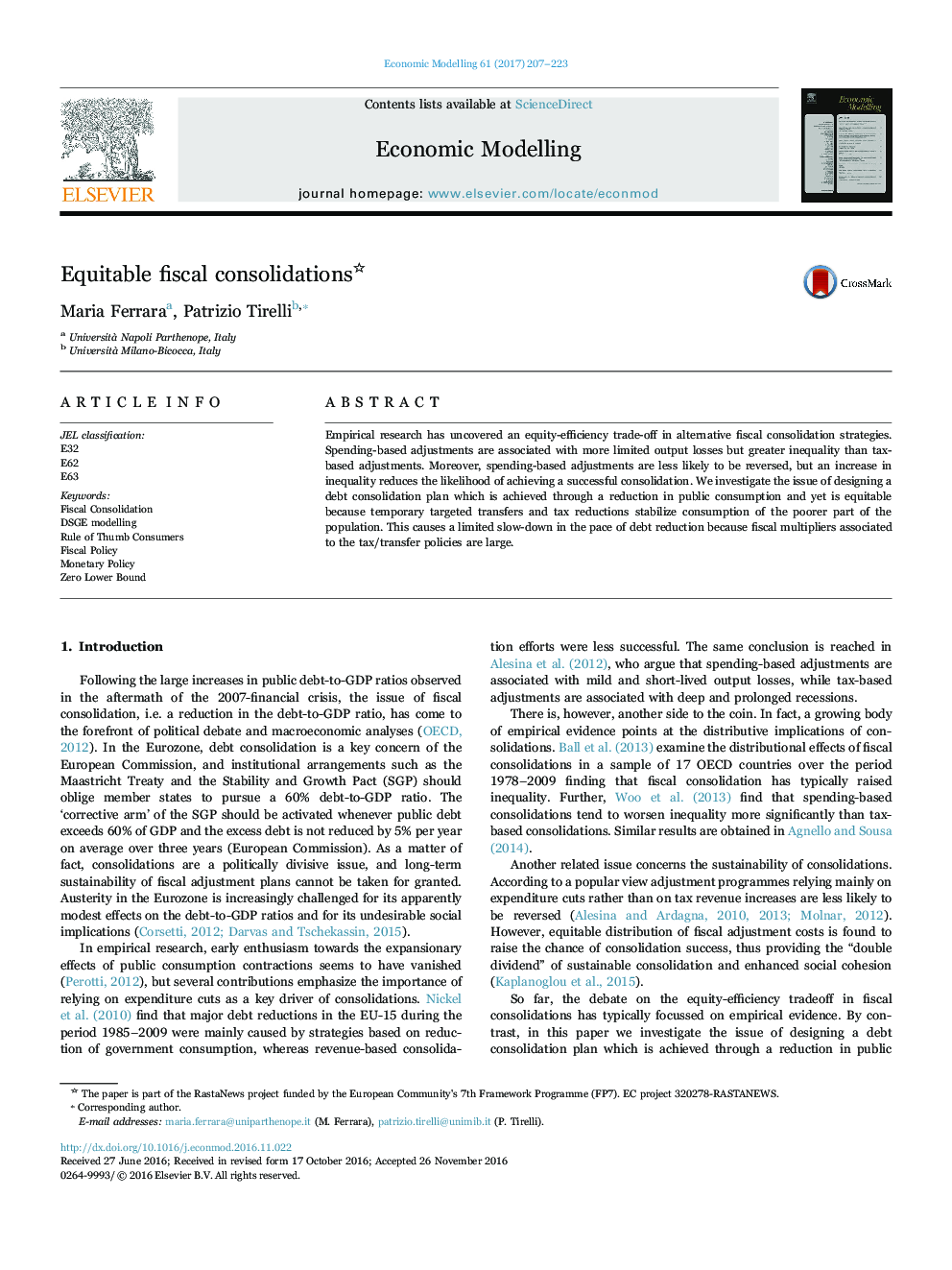| Article ID | Journal | Published Year | Pages | File Type |
|---|---|---|---|---|
| 5053102 | Economic Modelling | 2017 | 17 Pages |
Abstract
Empirical research has uncovered an equity-efficiency trade-off in alternative fiscal consolidation strategies. Spending-based adjustments are associated with more limited output losses but greater inequality than tax-based adjustments. Moreover, spending-based adjustments are less likely to be reversed, but an increase in inequality reduces the likelihood of achieving a successful consolidation. We investigate the issue of designing a debt consolidation plan which is achieved through a reduction in public consumption and yet is equitable because temporary targeted transfers and tax reductions stabilize consumption of the poorer part of the population. This causes a limited slow-down in the pace of debt reduction because fiscal multipliers associated to the tax/transfer policies are large.
Related Topics
Social Sciences and Humanities
Economics, Econometrics and Finance
Economics and Econometrics
Authors
Maria Ferrara, Patrizio Tirelli,
